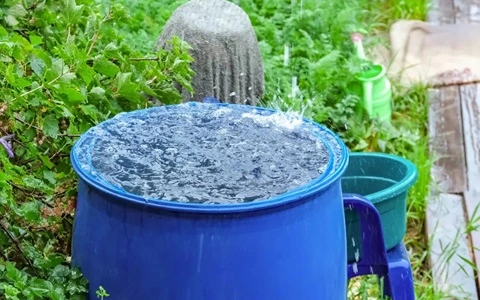No, it is not illegal to collect rainwater in Nevada. However, the practice is regulated to ensure that it does not infringe upon the state’s water rights laws. Nevada allows rainwater harvesting but has established rules to manage its impact on water resources and downstream users.
Understanding Rainwater Collection in Nevada
Nevada, a state known for its arid climate and reliance on carefully allocated water resources, adheres to a prior appropriation system for water rights. Under this system, water is legally allocated based on seniority of claims, and every drop of water—whether in rivers, streams, or reservoirs—is accounted for. This legal framework influences the regulation of rainwater collection.
Legal Framework for Rainwater Collection
1. Senate Bill 74 (2017)
In 2017, Nevada passed Senate Bill 74, which clarified the legality of rainwater harvesting for residential and non-commercial purposes. The law allows individuals to collect rainwater from their rooftops without requiring a water rights permit, provided the collected water is used for personal, non-commercial purposes.
2. Large-Scale Systems
For commercial or large-scale rainwater harvesting systems, such as those intended for industrial or agricultural use, a water rights permit may be required. These permits are issued by the Nevada Division of Water Resources (NDWR) to ensure compliance with water allocation laws.
3. Usage Limitations
Collected rainwater can be used for irrigation, landscaping, and other non-potable purposes. With proper treatment, it can also be used for potable purposes, though local health codes and plumbing regulations must be followed.
Why Rainwater Harvesting Is Regulated in Nevada
Nevada’s regulation of rainwater collection is driven by the state’s unique hydrological conditions and water rights system. Rainfall is a critical component of the state’s overall water supply, contributing to rivers, reservoirs, and aquifers that support agricultural, municipal, and environmental needs. By regulating rainwater harvesting, Nevada ensures that these water sources are not unduly impacted.
Encouragement of Sustainable Practices
Despite the regulatory framework, Nevada encourages sustainable water practices, including rainwater harvesting. The state views it as a means to reduce water consumption and mitigate the effects of drought. Educational programs and resources are available to guide residents in establishing compliant and effective rainwater harvesting systems.
Challenges and Considerations
1. Compliance with Local Codes
Residents must adhere to local building and plumbing codes when installing rainwater collection systems. For potable use, filtration and treatment systems are required to ensure water safety.
2. Limitations on Scale
While small-scale residential systems are encouraged, larger systems require permits and adherence to stricter guidelines.
3. Impact on Water Rights
Rainwater harvesting must not infringe upon the rights of downstream users or disrupt the balance of the state’s water resources.
Benefits of Rainwater Collection in Nevada
- Water Conservation: Reduces reliance on municipal water supplies and conserves resources during drought conditions.
- Environmental Impact: Mitigates stormwater runoff, reduces flooding, and supports sustainable landscaping practices.
- Cost Savings: Decreases water bills by supplementing municipal water with harvested rainwater.
Related FAQs
Q. Can I collect rainwater in Nevada without a permit?
Ans: Yes, you can collect rainwater for residential and non-commercial use without a permit. For larger systems or commercial purposes, a water rights permit is required.
Q. What are the permitted uses of collected rainwater?
Ans: Collected rainwater can be used for irrigation, landscaping, and other non-potable applications. With proper treatment, it may also be used for drinking and household needs.
Q. Are there incentives for rainwater harvesting in Nevada?
Ans: Nevada does not currently offer statewide financial incentives for rainwater harvesting, but local municipalities or organizations may provide resources or educational programs.
Q. Do I need to treat rainwater for irrigation?
Ans: No, treatment is not required for irrigation or landscaping use. However, water intended for potable use must be properly filtered and treated.
Q. What happens if I violate rainwater harvesting regulations in Nevada?
Ans: Non-compliance with regulations, such as operating a large-scale system without a permit, could result in fines or legal action. It’s essential to consult the NDWR for guidance.


